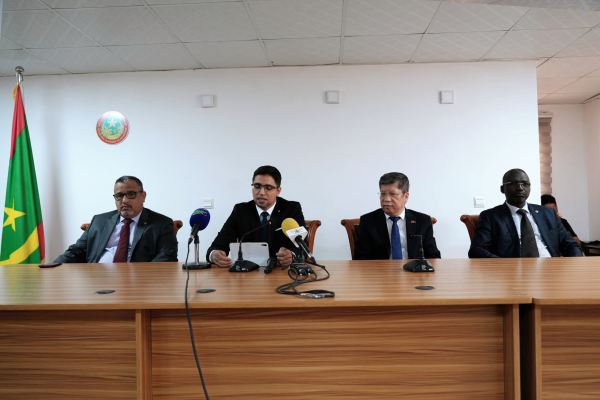Africa's digital transformation is gaining momentum, and building a strong digital infrastructure is crucial to achieving the goals outlined in previous strategy documents.
Mauritania plans to install an additional 2,300 kilometers of optic fiber cable nationwide, Minister of Digital Transformation Mohamed Abdallahi Ould Louly announced on June 10th. The plan, unveiled at the launch of a fiber optic training program, aims to connect all wilayas and moughatas to fiber optic infrastructure.
This initiative is part of the Mauritanian government's Digital Agenda 2022-2025, which seeks to leverage digital technology as a catalyst for accelerating the country's socio-economic development. In May 2021, the government established a specialized ministry to oversee all projects related to this vision. Since then, the country has already implemented more than 5,500 kilometers of fiber optic cable as part of its efforts to improve digital infrastructure.
In addition to political will, this progress has been driven by various partnerships. Notable agreements include several partnerships with the United Arab Emirates and France, as well as prospects for enhanced cooperation in the digital sector with the United Nations. On April 2, the Mauritanian minister met with Leila Peters Yahya, the UN system's Resident Coordinator in Mauritania, in Nouakchott to discuss these collaborations.
Under its Digital Agenda 2022-2025, Mauritania planned to lay 4,000 kilometers of backbone infrastructure by 2025 and has outlined plans for an additional 4,000 kilometers in the coming years. The goal is to enhance Internet connectivity and access to international bandwidth, which are essential conditions for the development of e-government, the proliferation of startups, and the emergence of a technological ecosystem in the country.
Adoni Conrad Quenum



















